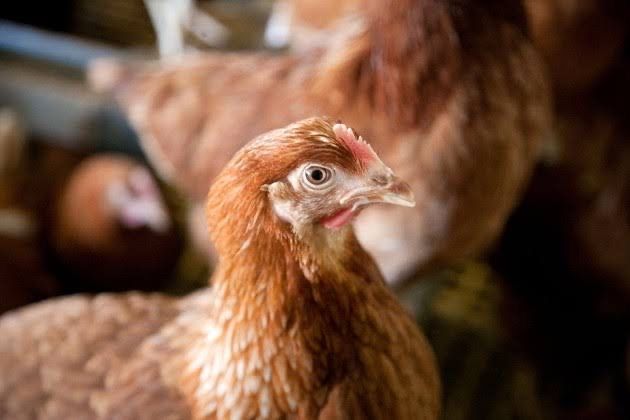Transgenic Animals and Edible Vaccines: A Leap Forward in Immunization Strategies
Introduction In the ceaseless pursuit of disease prevention, scientists are exploring every possible avenue for vaccine delivery. Among these, the use of transgenic animals—animals genetically modified to produce foreign proteins—to create edible vaccines in their milk or eggs represents a fascinating blend of biotechnology and public health. Transgenic

Introduction
In the ceaseless pursuit of disease prevention, scientists are exploring every possible avenue for vaccine delivery. Among these, the use of transgenic animals—animals genetically modified to produce foreign proteins—to create edible vaccines in their milk or eggs represents a fascinating blend of biotechnology and public health.
Transgenic Animals: A Frontier in Biotechnology
Transgenic animals are organisms whose genetic makeup has been altered to express a gene from another species. By inserting a specific gene associated with a disease into the DNA of an animal, we can potentially create organisms that produce edible vaccines. This is an exciting development, offering a new way to stimulate immune responses without traditional injections.
The Process of Vaccine Production in Milk and Eggs
The procedure begins by identifying an antigen—a protein from a pathogen that provokes an immune response. This antigen gene is then introduced into the animal's genome, typically at an early embryonic stage. The goal is to integrate the gene into the animal's DNA in such a way that it is expressed in the milk or eggs.
Once the animals mature and start producing milk or eggs, these products can be harvested and tested for the presence of the antigen. If successful, consuming these products should provoke an immune response, effectively vaccinating the consumer against the disease.
Advantages and Potential Applications
The production of vaccines in milk or eggs could offer numerous benefits. It can be a cost-effective and scalable way to produce vaccines, potentially beneficial for mass immunizations or in regions where resources are limited. Moreover, oral or edible vaccines can be easier to administer, particularly to children or individuals with needle phobia. They also reduce the need for trained medical personnel and eliminate the risks associated with needle use.
One potential application could be avian flu. Chickens could be genetically engineered to produce antigens in their eggs to immunize against this disease, contributing to the control and prevention of avian influenza outbreaks.
Challenges and Ethical Considerations
Despite the promise of this approach, there are significant hurdles to overcome. Ensuring the correct dosage of the vaccine can be tricky—food products vary in size and content, making standardization a challenge. There are also potential issues with vaccine stability and safety to consider.
From an ethical standpoint, the use of genetically modified organisms (GMOs) in food products is a subject of public debate, with concerns about potential long-term effects on human health and the environment. The welfare of the transgenic animals must also be taken into account.
Transgenic animals producing edible vaccines in their milk or eggs represent an intriguing blend of biotechnology and public health, offering novel possibilities for disease prevention. As research progresses in this exciting field, it will be important to carefully address the scientific, logistical, and ethical challenges that accompany this innovation. This work has the potential to not only shape the future of vaccination strategies but also to reinforce the importance of cross-disciplinary collaboration in advancing public health.
The Medical Revolution of Edible Vaccines from Transgenic Animals: Implications for Public Health
The advent of edible vaccines derived from transgenic animals holds the potential for a paradigm shift in immunization and public health. This innovative approach could revolutionize the way we administer vaccines, moving from traditional injections to consumption of everyday food products like milk or eggs.
Enhancing Accessibility and Compliance
The introduction of edible vaccines could considerably enhance accessibility. In remote or resource-poor areas, distribution and administration of conventional vaccines can be challenging due to lack of cold storage facilities or healthcare personnel. Edible vaccines, being non-perishable and easy to transport, could surmount these barriers. Moreover, the oral administration route is non-invasive and eliminates needle-associated fears, thereby improving vaccine compliance.
Scalability and Cost-Effectiveness
Transgenic animals could provide a scalable and cost-effective means of vaccine production. For instance, a single genetically modified chicken laying eggs containing a vaccine could create hundreds of doses over its lifetime, offering a sustainable and efficient production method.
Personalized Immunization
Another potential advantage is the opportunity for personalized immunization. Different antigens could be introduced into different animals, providing a wide range of vaccines. This could enable individuals to consume vaccines specific to their health needs, paving the way for a more personalized approach to immunization.
Challenges and Considerations
However, the transition to edible vaccines would not be without challenges. Ensuring consistent dosage, vaccine stability, and storage conditions need careful consideration. Potential side effects and the effectiveness of orally administered vaccines compared to injected ones will require thorough investigation.
Ethical, societal, and regulatory issues will also arise. Public attitudes towards genetically modified organisms vary widely, and the welfare of transgenic animals used for vaccine production will be a significant ethical concern. Rigorous testing and regulatory approvals will be necessary to ensure the safety and efficacy of these vaccines.
While the road to widespread use of edible vaccines is likely to be long and complex, the potential benefits for public health are substantial. This new frontier of vaccination holds the promise of a medical revolution, shifting the narrative from disease treatment to proactive prevention. As research advances, so does our hope of a future where vaccines are as accessible and straightforward as a morning glass of milk or an omelet. The potential impact on global health could be profound, opening new avenues in our ongoing battle against infectious diseases.




